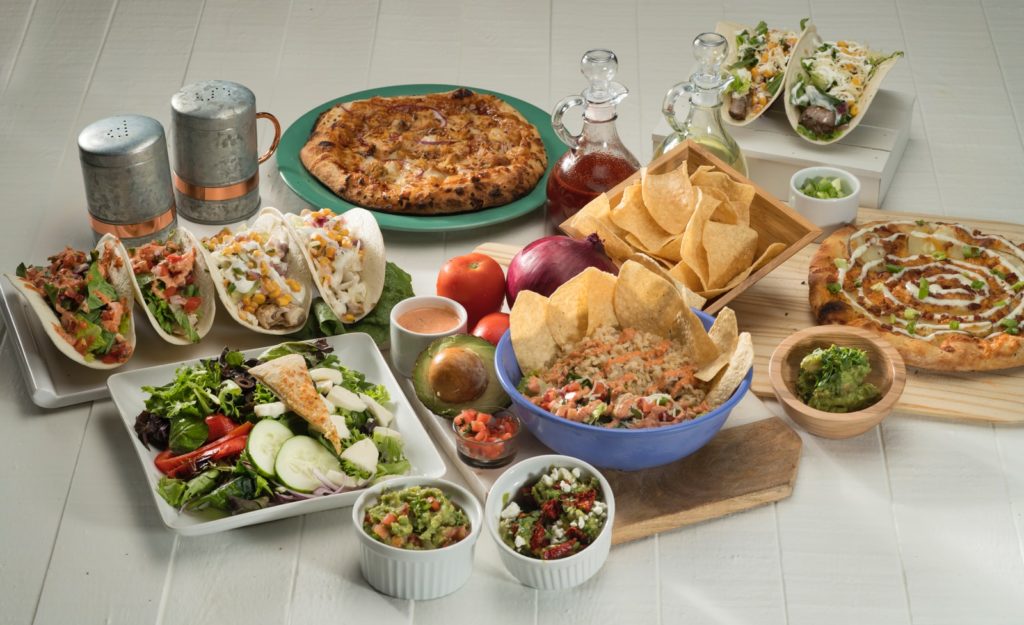What Makes You Obese?
Did you know that obesity has now become one of the “commonest” health problems faced by the people all over the world? Unfortunately, until now, many people have been even unaware of the fact that obesity is, in fact, a serious health disease.

It has been estimated that about over 300 million people worldwide are obese and 750 million more are overweight. Speaking of the USA alone, according to recent surveys, about 60% of American adults are overweight, that is 39.8 million people.
The US National institutes of Health reports that obesity and being overweight are the second leading causes of preventable death in the United States and an estimated 300,000 deaths per year are caused by obesity.
Similarly, in the UK, the effects of obesity are pretty much the same. About 46% of men in England and 32% of women are overweight and an additional 17% of men and 21% of women are considered to be suffering from obesity.
What is obesity?
Simply speaking, a person can be called as obese when his or her weight is 20% or more above the normal weight. Obesity is a term used to describe body weight that is much greater than what is considered healthy. In other words, obesity is an excess proportion of total body fat.
The criteria for measuring obesity
There are many ways to determine if a person is obese, although experts now believe that a person’s body mass index (BMI) is the most accurate measurement of body fat for children and adults.
Is being obese and overweight different?
Many people believe that being overweight and obese are synonymous with each other. In reality, however, both terms are different. An adult woman or man is considered “overweight” when he/she is above a healthy weight, which varies according to a person’s height.
- An individual is overweight when his / her BMI is from 25 to 29.9
- An individual is obese when his / her BMI is 30 or more.
- At this point, you might wonder what this BMI is at all.
What is body mass index?
Body Mass index or BMI is an internationally recognized standard used by researchers to define a person’s weight according to his (or her) height.
In simple words, the BMI is a ratio of weight-to-height.
How do people become obese (what causes obesity)?
To understand how a person becomes obese or over weight, remember a simple formula.

If your “daily input” is more than your “daily output”, there are high chances that sooner or later you’ll become overweight or obese. So, obesity occurs when a person consumes more calories than he or she burns. For many people this boils down to eating too much and exercising too little. But there are other factors that also play a role in obesity. These may include:
- Age: As the person ages, the body metabolizes food slowly, resulting in low calorie expenditure.
- Gender: interestingly, women seem to be more overweight or obese than men.
- Genetics: Obesity runs in families, from one generation to the next.
- Psychological reason: People experiencing negative emotions like boredom, sadness, or anger tend to eat in excess and, thus, are at increased risk of becoming obese.
- Illness: Certain conditions like hypothyroidism, depression, and some rare brain diseases can make people overeat.
- Medication: Steroids and some anti-depressants may cause excessive weight gain.
All in all, if you want to successfully address and treat the problem of obesity or overweight, you should first know what puts you on its risk. Once you have ascertained the cause, you can then take the most suitable measure to normalize your weight accordingly.
At least 30 minutes of daily physical activity, eating a well-balanced low-fat, low-carb diet and consuming safe diet pills such as fiber supplements can be three of your best, easiest and cheapest ways to lose weight fast and yet effectively.
How to Start Losing Weight?
Some people find it hard to stick to diets and consistently fail to lose weight. They try nearly every kind of new dieting idea that comes along hoping that one of them would finally work, but the miracle never happens. Naturally, these people tend to overlook their own mistakes and fail to understand what prevents them from losing weight.

The human brain displays a remarkable ability of ignoring the things it does not want to face, so it’s not hard to understand why some people eat all manner of things and still claim they haven’t touched anything but salad for a whole week.
But there are ways of working around these problems and if you don’t want to become one of these people, then you should stick to these pointers. Their purpose is to make eating a conscious act in order to avoid giving in to compulsions and temptations.
The easiest thing to do is to carry around a notebook and a pen and to write down everything you eat. And I mean every little thing. Have you finished that half a slice of pizza that your partner couldn’t eat anymore? Write it down. At the end of the day look over the list and you’ll be surprised at how many things you actually eat on a regular basis.
Start Thinking!
Since eating and drinking are, for the most part, acts that bypass rational thinking you should try to bring them out of the twilight zone. So every time you reach out for a drink or some food, stop and ask yourself “Why am I doing this?”.
You may be thirsty, hungry, bored, lonely, depressed, tired or stressed, but out of this list of reasons only thirst and hunger are legitimate. Put the bottle down if you’re not thirsty. Put the food back on the shelf or on the table if you’re not hungry.
Do you crave sweets because you’re tired? Get some sleep instead. Do you feel the need to eat because you’re lonely and depressed? Go to the cinema or visit a friend. Read a book, watch a movie or listen to some music. There are options.
Never Starve Yourself
Never starve yourself. This is one of the big mistakes in dieting. Unless you have enough willpower to qualify for Nietzsche’s Overman status you will break down sooner or later and eat the first thing that you can get your hands on.
Such as snacks or fast food. Starvation also makes the body go into power save mode by limiting your energy levels and hanging on to the existing fat. The body makes no difference between dieting and actual starvation and will behave as if in danger. Therefore, you must eat three meals a day, plus snacks consisting of fruit and vegetables. This is the best way to lose weight.
Don’t try to banish your favorite foods completely because you will only sap your own willingness to stick to a diet. The key to dieting is moderation, not denial. Do you like ice cream? Well, have a couple of spoons of ice cream every Sunday. Take a break from whatever it is you’re doing and enjoy this special treat. Don’t feel like you’re cheating on the diet and keep any guilt pangs away. You’re just dieting, not preparing for admission to a convent or monastery. So have a bit of forbidden food every five days or so and enjoy the moment.
If you’re not used to exercising and are a bit scared of all the effort and sweating, then start small. There’s no need to rush into hour-long training sessions. Five minutes per day will do for starters. Get a treadmill and a pair of dumbbells and make your own schedule. Two minutes and a half of running and two minutes and a half of curls. Every week increase the time spent exercising by another five minutes and add new exercises. Your goal should be to spend at least 30 minutes every day working out your body. Sixty minutes is even better, but it will come in time.
Try Fiber Supplements
And, of course, you must try a fiber pill for weight loss. Fiber supplements often contain a complex of fibers, one non-soluble, the other soluble. Well the non-soluble fibers are designed to come into contact with the dietary fats in your stomach and bind with them immediately to form a fluid gel. This makes the fats complex large, making them harder to be absorbed by your body, and as a result, it’s naturally passing out of your body instead.
The soluble fibers within fiber supplements are thick and sticky, having a consistency between a solid and a liquid, known as viscous. When these two complexes meet they form a very viscous solution which helps to gradually slow down digestion within the body and slow down the absorption of glucose into your blood stream.
Your stomach finds this solution a lot harder to digest, resulting in it staying in your stomach beyond the normal length an ordinary meal would stay. You can feel could feel fuller for much longer, helping to reduce your cravings for food.
Fiber supplements can really aid your exercise and weight management program!
Discovering the Truth About Fiber and Carbohydrates
It’s a well-known fact that a diet rich in carbohydrates is a proven way to satiate your appetite and makes you feel fuller. On the other hand, a diet low in carbohydrates can actually cause temporary weight loss. However, this temporary weight loss is not without some serious health risks. This presents a serious diet dilemma of what one should do while selecting a carb diet.

The solution to this dilemma is quite simple. All you need to know is “what to eat?” Yes, it’s all about making wise carbohydrate choices.
Features of carbohydrates
Let’s first review what carbohydrates are, where are they found and what do they do for our bodies.
Definition: Simply speaking, carbohydrates (or saccharides) are sugars and starches, which serve as a fuel for our body systems.
Functions: Carbohydrates are our body’s major fuel for each of the functions that it performs e.g. respiration, reproduction, mobility, circulation and nerve signal transmission (the function of CNS). They actually give our body the required energy for the skeleton, muscles and central nervous system (including brain and spinal cord). The performance and function of our brain, in particular, specifically depends on carbohydrates e.g. functions like learning, thought process, thinking etc., cannot be performed without a continuous supply of glucose from the blood.
Sources: the common sources of carbohydrates include fruits (carbs are found in the form of fructose), various vegetables, beans, several dairy products; food produced from grains, and also the sugar, honey and corn syrup.
Types: After digestion, our body converts carbohydrates into glucose, which is utilized by our cells as a fuel source. Depending on the same, there are two major types of carbohydrates:
- Simple carbohydrates: these carbs are broken down quickly and easily by the body into glucose.
- Complex carbohydrates: these carbs are broken down slowly and take more time to enter the blood circulation.
The role of insulin: insulin is a hormone that is secreted by pancreas, a digestive gland. The main role of insulin is that it controls the blood sugar (glucose) levels in our blood. Once all carbohydrates are broken down into glucose, insulin helps the glucose enter the muscles / tissues’ cells. The remaining glucose is stored as glycogen in the liver and muscles for future use (this is the same glucose that we use during our exercise / workouts). Any additional / remaining glucose is stored in the body as “fat”.
Are all carbohydrates equal?
With respect to their structure and food value, carbohydrates can be classified into three types:
Simple carbohydrates: these carbs are made up of one or two sugar units that are broken down and absorbed quickly into the blood circulation. For the same reason, some modern studies have shown that some of the food belonging to simple carbohydrate group can actually cause acute increase in blood glucose levels which naturally results in more insulin release from pancreas, eventually resulting in enhanced appetite and more risk of fat storage instead of fat burning.
Examples: Sugar, candies, honey, syrups, candy, honey, jams, jellies, molasses, juices and soft drinks all contain simple carbohydrates. While fruits primarily have simple carbohydrates, they are also enriched in valuable vitamins, minerals, fiber, and water. Similarly, dairy products e.g. milk contain simple carbohydrates along with proteins, calcium and other nutrients.
Complex carbohydrates (starch): they consist of more than two sugar units. Brown rice and refined (white bread) form are some perfect examples of such carbs. They have a more complex structure and hence, take more time to be digested and absorbed into the blood. For the same reason, they cause only an average increase in insulin secretion which results in stabilization of appetite and only a few carbs are stored as a fat.
Examples: Unrefined or ‘whole grain’ carbohydrates commonly found in whole grain pasta, brown rice and bran cereals take more time to be digested. They also have plenty of vitamins, fiber and minerals which is essential for health and growth.
Legumes such as beans, peas, lentils and soybeans contain complex carbohydrates but also have plenty of fiber, vitamins, minerals, and protein.
Grain products usually have complex carbohydrates. However, they also contain fiber, vitamins, minerals, and protein.
Vegetables contain variable amounts of both simple and complex types of carbohydrates and several nutrients e.g. vitamins, minerals and are also a great source of fiber, and water.
Fiber. They cannot be broken down by the body into smaller units for absorption and hence are not an energy source for the cells. However, they are a good source of health especially with respect to their role in promoting better digestion of other foods. They also prevent us from constipation.
It is clear from the above discussion that not all carbohydrates are equal, and each type has its own structure, function and role in the body. Therefore, making a wise carbohydrate food choice is essential and should be done in the light of your fitness goal i.e. weight loss, muscle building or just maintaining your fitness.
Role of Fiber Supplements in Weight Loss
Individuals who are dieting to lose weight often find it helpful to include high-fiber foods, as well as fiber supplements in their diets, since these foods are usually low in calories and so help to produce a feeling of fullness.

What is fiber?
Fiber is the portion of plant material that humans are not able to digest. In other words, dietary fiber is that portion of plants that cannot be digested by the non-microbial enzymes of the human digestive tract. Fiber consists of a variety of substances, most of which are complex carbohydrates.
Types of fiber
There are two kinds of dietary fiber, soluble and insoluble. Both are important for proper bowel function.
- Soluble fiber: Soluble fiber dissolves in water, forming a gel in the intestines. Its rich sources include oatmeal, barley, kidney beans, some fruits and vegetables.
- Insoluble fiber: Insoluble fiber passes through the digestive system almost intact, adding bulk to the stool and acting as a sponge to absorb water. Its rich sources include wheat bran, whole grains, many vegetables and skins of fruit.
Some of the main health benefits of dietary fiber supplements
- Soluble fiber can help lower serum cholesterol levels by inhibiting the absorption of cholesterol.
- Fiber helps to regulate or slow glucose absorption.
- Fiber adds bulk to stool, keeping stool soft and the bowels moving regularly.
- For weight loss: Both types of fiber (especially insoluble fiber) make you feel full, without adding a lot of calories. Fiber-rich foods tend to be low in fat too.
- Fiber-rich foods contain phytochemicals, known to reduce cancer risks. Fiber may also help detoxify cancer-causing substances.
Foods with fiber have lots of vitamins and minerals that our bodies need. Fiber also helps our bowels to function properly on a regular basis, and to prevent either diarrhea or constipation
How much fiber should you have each day?
20-35 grams/day is recommended. Some people can tolerate even more. If you don’t eat a lot of fiber now, increase fiber by small amounts (a few grams) each day. This will help to decrease uncomfortable symptoms of bloating, gas and diarrhea. Make sure to drink plenty of water as well, to prevent constipation.
Is there any herbal weight loss supplement that is rich in fiber?
Indeed, yes. In fact, many nutritionists and dieticians today do recommend the use of fiber-based dietary supplements for the purpose of preventing obesity or excessive weight gain.
Fiber supplements are unique purely organic herbal supplements with a dual mode of weight loss action.
- It works by binding with the fat in the food you eat, preventing excess absorption of fat.
- It works by naturally suppressing your appetite as it contains significant quantities of soluble fiber that dissolves in water, forming a gel in the stomach and intestines. This gives you a feeling of “being fuller” and you are naturally refrained from overeating.